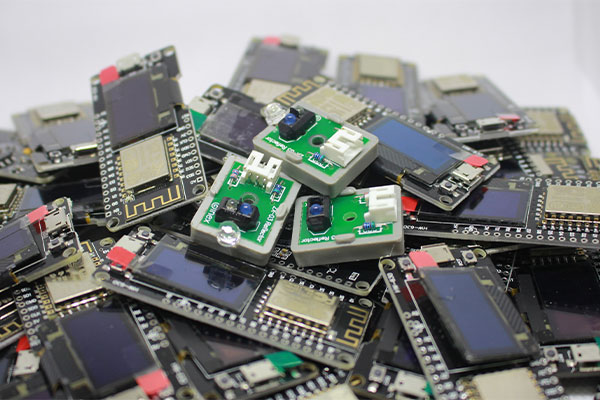

Reducing waste in manufacturing is not just a strategic choice; it’s an essential practice for a sustainable future. Waste reduction in manufacturing is a cornerstone of our approach at Cypress Technologies. We’re committed to minimizing waste throughout our electronic contract manufacturing processes. From employing Lean Six Sigma principles to integrating recycling and material reuse, our efforts ensure that we produce high-quality products while reducing environmental impact.
The Power of Lean Six Sigma
Lean Six Sigma principles are at the core of our waste reduction in manufacturing strategy. This methodology focuses on improving efficiency and eliminating defects by analyzing processes and finding areas where waste can be reduced or removed entirely. By adhering to these principles, Cypress Technologies has streamlined workflows and optimized resource use, reducing waste and enhancing production quality and customer satisfaction.
For example, continuous process improvement initiatives have significantly reduced material waste and improved cycle times. Our teams are trained to identify inefficiencies and take proactive steps to address them. The result? A cleaner, more efficient production environment that benefits both our clients and the planet.
Recycling and Reusing Materials
One of the standout practices at Cypress Technologies is our focus on waste reduction in manufacturing through recycling and reusing materials wherever possible. During the assembly and production phases, we make a concerted effort to collect and repurpose scrap materials. This approach reduces the need for new resources and cuts down on the waste that would otherwise end up in landfills.
Our e-waste management program ensures that obsolete electronic components are properly processed and recycled, preventing harmful materials from contaminating the environment. By collaborating with certified recycling partners, we uphold strict environmental standards and promote responsible disposal practices.
Innovative Approaches to E-Waste Reduction
E-waste is a significant concern in the context of waste reduction in manufacturing within the electronics industry. Cypress Technologies is addressing this challenge through forward-thinking solutions and sustainable practices. Our design and engineering teams work to extend the life cycle of products by incorporating durable components and developing repairable and upgradable assemblies.
Additionally, we engage in product lifecycle assessments to identify opportunities for reducing e-waste right from the design stage. This helps ensure that our products meet high performance and quality standards and are eco-friendly by design.
To bolster our e-waste reduction efforts, we continuously educate our team members and promote a culture of sustainability. This commitment empowers employees to contribute ideas and practices that minimize waste. We also encourage open collaboration with partners and clients to align sustainability goals and integrate waste reduction measures into joint projects. This cooperative approach ensures that all stakeholders are invested in sustainable manufacturing practices.
Technology’s Role in Waste Reduction
Technological advancements play a critical role in Cypress Technologies’ waste reduction initiatives. We can precisely manage materials and reduce excess by leveraging cutting-edge manufacturing technologies such as automated assembly lines and advanced monitoring systems. Real-time data analytics allow us to make informed decisions that optimize material usage and minimize scrap, leading to a more efficient and eco-conscious production process.
Incorporating machine learning and AI-driven quality control systems further enhances our ability to detect potential defects early, thus avoiding material waste and ensuring consistent product quality. These intelligent technologies enable proactive adjustments during production, maintaining high standards while cutting down on resources used.
The Benefits of Waste Reduction
Waste reduction in manufacturing provides several key benefits:
Cypress Technologies: A Partner Committed to Sustainability
At Cypress Technologies, we believe that waste reduction is an ongoing journey. By leveraging Lean Six Sigma principles, recycling materials, and embracing innovative approaches to e-waste management, we continue to set a high standard in electronic contract manufacturing.
Want to learn more about how our waste reduction initiatives can support your business and align with your sustainability goals?
Call us at 512.267.9973 or visit Cypress Technologies to see how we can collaborate on sustainable solutions.
Our People First Company Culture Fuels Success When you walk into Cypress Technologies, you will…
The choices electronics manufacturers make when sourcing materials go far beyond cost and efficiency. Ethical…
The promise of new tariffs under the incoming administration creates challenges for companies reliant on…
The manufacturing industry is transforming as businesses increasingly focus on sustainability. Instead of sticking to…
In electronic manufacturing, quality is more than a feature—it’s the backbone of every successful product…
Once characterized by resource-heavy methods and significant waste, traditional manufacturing processes are evolving to embrace…
This website uses cookies.